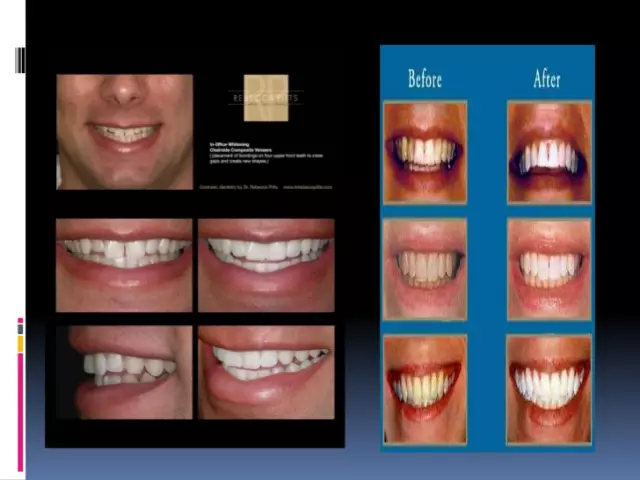- Author Rachel Wainwright wainwright@abchealthonline.com.
- Public 2023-12-15 07:39.
- Last modified 2025-11-02 20:14.
Sulpirid Belupo
Sulpirid Belupo: instructions for use and reviews
- 1. Release form and composition
- 2. Pharmacological properties
- 3. Indications for use
- 4. Contraindications
- 5. Method of application and dosage
- 6. Side effects
- 7. Overdose
- 8. Special instructions
- 9. Application during pregnancy and lactation
- 10. Use in childhood
- 11. In case of impaired renal function
- 12. Use in the elderly
- 13. Drug interactions
- 14. Analogs
- 15. Terms and conditions of storage
- 16. Terms of dispensing from pharmacies
- 17. Reviews
- 18. Price in pharmacies
Latin name: Sulpiride Belupo
ATX code: N05AL01
Active ingredient: sulpiride (Sulpiride)
Manufacturer: BELUPO, drugs and cosmetics d. D. (BELUPO, Pharmaceuticals & Cosmetics, dd) (Croatia)
Description and photo update: 2020-17-01
Prices in pharmacies: from 81 rubles.
Buy

Sulpiride Belupo is a neuroleptic drug that is highly effective in psychotic disorders.
Release form and composition
Dosage form - capsules: hard gelatinous, the capsule contains white powder; dosage 50 mg - size # 4, white body and cap; dosage 200 mg - size No. 0, blue body and white cap (50 mg capsules: 12 pcs. in a bottle, 1 bottle in a cardboard box; 200 mg capsules: 15 pcs. in a blister, in a cardboard box 2 blisters. Each the pack also contains instructions for the use of Sulpiride Belupo).
Composition of 1 capsule:
- active substance: sulpiride - 50 or 200 mg;
- auxiliary components (50/200 mg): corn starch - 31/112 mg; lactose monohydrate - 29/83 mg; pregelatinized corn starch - 7.2 / 0 mg; magnesium stearate - 2.8 / 5 mg;
- capsule shell (cap 50/200 mg): titanium dioxide - 2%; gelatin - up to 100%;
- capsule shell (case 50/200 mg): titanium dioxide - 2%; gelatin - up to 100% / titanium dioxide - 1.1%; indigo carmine FD&C blue 2 - 0.11%; gelatin - up to 100%.
Pharmacological properties
Pharmacodynamics
Sulpiride is one of the atypical antipsychotics (a group of substituted benzamides). It is characterized by moderate neuroleptic activity, combined with antidepressant and stimulating effects.
Neuroleptic properties are due to antidopaminergic action. After the use of sulpiride in the central nervous system, predominantly dopaminergic receptors of the limbic system are blocked, the motor (nigrostriatal) system is slightly affected. Therapy is accompanied by the development of a small number of side effects. The peripheral effect is based on the suppression of presynaptic receptors. The amount of dopamine in the central nervous system is important, with an increase in its level, an improvement in mood is noted, with a decrease, symptoms of depression appear.
The direction of the effect produced by the intake of Sulpiride Belupo is determined by the daily dose: up to 0.6 g antidepressant and stimulating effect prevails, from 0.6 g - antipsychotic effect. It has no significant effect on adrenergic, serotonin, cholinergic, histamine and GABA (gamma-aminobutyric acid) receptors.
In low doses, as an adjuvant, Sulpiride Belupo can be used to treat psychosomatic diseases, it is prescribed to relieve the mental symptoms of gastric ulcer and duodenal ulcer. Also, the drug is effective for abdominal pain accompanying irritable bowel syndrome, as a result of its use, there is an improvement in the patient's clinical condition.
In low doses, Sulpiride Belupo can be used to treat dizziness of any etiology. It inhibits the vomiting center and leads to the stimulation of prolactin secretion.
Pharmacokinetics
Sulpiride is characterized by a low absorption rate, the maximum plasma concentration of the substance is observed 3-6 hours after oral administration. Bioavailability is in the range from 25 to 35%, this indicator is characterized by individual variability. Sulpiride has linear pharmacokinetics when used in the dose range of 50-300 mg. Taking Sulpiride Belupo simultaneously with food leads to a decrease in its absorption by 30%.
Sulpiride is characterized by rapid tissue distribution. It binds to plasma proteins at about 40%, in equilibrium the volume of distribution is 0.94 l / kg. A small amount is excreted in breast milk and penetrates the placental barrier.
The metabolic process is poorly exposed. Excretion is carried out mainly in the form of unchanged substance by glomerular filtration. The half-life of sulpiride from plasma is 7 hours, the total clearance is 126 ml / min.
Indications for use
Sulpiride Belupo 50 mg capsules are prescribed for the treatment of the following diseases / conditions:
- anxiety disorders: for short-term symptomatic therapy in adult patients in cases where other drugs do not have the desired effect;
- behavioral disorders: it is used in children from 6 years of age, especially with autism syndrome, in severe cases of disorders, including agitation, self-harm, stereotypy.
Capsules Sulpiride Belupo 200 mg as monotherapy or in combination therapy with other psychotropic drugs are indicated for psychotic disorders in acute and chronic course, including schizophrenia, chronic hallucinatory psychosis, paranoid delusions.
As an adjunctive therapy, Sulpiride Belupo is used for irritable bowel syndrome (IBS), gastric ulcer and 12 duodenal ulcer.
Contraindications
Absolute:
- intoxication with alcohol, drugs with hypnotics, narcotic analgesics (in acute course);
- prolactin-dependent tumors (including breast cancer, pituitary prolactinomas);
- hyperprolactinemia;
- pheochromocytoma, including in the presence of suspicions;
- congenital galactosemia, glucose / galactose malabsorption syndrome or lactase deficiency;
- combination therapy with levodopa, mechitazine, cabergoline, quinagolide, rotigotine, citalopram and escitalopram;
- age up to 6 and 14 years (for capsules 50 and 200 mg, respectively);
- lactation period;
- established hypersensitivity to the components of the drug.
Relative (taking Sulpiride Belupo requires special care and careful medical supervision):
- predisposition to the occurrence of cardiac arrhythmias, including with bradycardia less than 55 beats per minute, electrolyte imbalance (including patients with hypokalemia), congenital prolongation of the QT interval, combined therapy with drugs that can lead to these disorders;
- a burdened history of neuroleptic malignant syndrome;
- a state of aggressive behavior or excitement with impulsivity;
- the presence of risk factors for the development of stroke, thromboembolism;
- Parkinson's disease;
- diabetes mellitus, including patients with risk factors for the development of the disease;
- aggravated history of epilepsy or seizures;
- renal failure;
- combined use with drugs containing ethanol;
- burdened history of glaucoma, intestinal obstruction, congenital stenosis of the digestive tract, prostatic hyperplasia or urinary retention;
- severe hypertension, especially in elderly patients;
- pregnancy;
- advanced age, including with dementia;
- childhood.
Sulpirid Belupo, instructions for use: method and dosage
Sulpiride Belupo capsules are intended for oral administration.
A single dose should be taken before meals and washed down with water. It is advisable to start therapy with the lowest dose, gradually increasing it until the desired effect is achieved. The daily dose must be divided into several doses, the last of which must be no later than 16 hours.
If other methods of treatment are ineffective in adults, symptomatic therapy is carried out in a daily dose of 50-150 mg, the maximum duration of the course is 4 weeks. In the treatment of acute / chronic psychotic disorders, Sulpiride Belupo is prescribed in a higher daily dose - from 200 to 400 mg, it is possible to increase it to 1200-2400 mg (maximum).
For children over 6 years old, the dose of Sulpiride Belupo is calculated depending on the weight and is 5-10 mg / kg. In elderly patients treatment should be used with caution in a reduced dosage of 1 / 4 - 1 / 2 adult dose.
The excretion of sulpiride from the body is carried out mainly by the kidneys, therefore, in patients with impaired renal function, correction of the dosage regimen is necessary, including changing the daily dose and / or the interval between taking single doses. With CC (creatinine clearance) of 30-60 ml / min, the dose is reduced to 70%, and the interval is increased by 1.5 times. With CC 10-30 ml / min and less than 10 ml / min, the dose is reduced to 50 and 30%, and the interval is increased by 2 or 3 times, respectively.
Side effects
During therapy with Sulpiride Belupo, it is possible to develop undesirable phenomena that are similar to those caused by the use of other psychotropic drugs. However, the frequency of their occurrence is predominantly less.
Possible side effects of Sulpiride Belupo [> 10% - very often; (> 1% and 0.1% and 0.01% and <0.1%) - rarely; <0.01% - very rare; frequency cannot be established from the available data - with an unspecified frequency]:
- nervous system: often - drowsiness, sedation, akathisia, extrapyramidal disorders (in most patients, after taking antiparkinsonian drugs, these disorders disappear), tremor, parkinsonism; infrequently - dyskinesia, muscle hypertonia and / or dystonia; rarely - oculogyric crisis; with unknown frequency - hypokinesia, neuroleptic malignant syndrome, convulsions, tardive dyskinesia;
- endocrine system: often - hyperprolactinemia;
- genitals and mammary gland: often - galactorrhea, breast tenderness; infrequently - an increase in the mammary glands, impaired erectile function, orgasmic dysfunction, amenorrhea; with an unknown frequency - gynecomastia;
- cardiovascular system: infrequently - orthostatic hypotension; rarely - ventricular fibrillation, ventricular arrhythmias, ventricular tachycardia; with an unknown frequency - increased blood pressure, cardiac arrest, prolongation of the QT interval, pirouette ventricular tachycardia, venous thromboembolic complications, sudden death;
- psyche: often - insomnia;
- blood and lymphatic system: infrequently - leukopenia; with an unknown frequency - agranulocytosis, neutropenia;
- liver and biliary tract: often - increased activity of liver enzymes;
- immune system: with unknown frequency - anaphylactic reactions (including shortness of breath, excessive lowering of blood pressure, urticaria, anaphylactic shock);
- digestive system: infrequently - hypersalivation;
- others: often - macular-papular rash; weight gain; with an unknown frequency - trismus, torticollis, drug withdrawal syndrome in newborns.
Overdose
There are no specific signs of an overdose of Sulpiride Belupo. Possible symptoms: dyskinesia with spastic torticollis, trismus, protruding tongue, in some cases coma, parkinson's syndrome may be observed.
Therapy: symptomatic and supportive. Careful monitoring of respiratory function is required. Cardiac activity is monitored until the patient is fully recovered, since there is a high risk of developing ventricular arrhythmias and lengthening the QT interval. If a pronounced extrapyramidal syndrome occurs, drugs with anticholinergic action may be prescribed.
The substance is partially excreted during hemodialysis. There is no specific antidote.
special instructions
During the period of application of Sulpiride Belupo, the development of a malignant neuroleptic syndrome is possible, which is characterized by pallor of the skin, hyperthermia, muscle rigidity, dysfunction of the autonomic nervous system, impaired consciousness. Early warning symptoms include lability in blood pressure and increased sweating. If during the period of therapy there is an unexplained increase in body temperature, the drug is canceled.
Before you start taking Sulpiride Belupo, it is important to correct hypokalemia and hypomagnesemia. Also, patients with a prolonged QT interval or the presence of factors that can lead to this disorder need careful medical monitoring, including an ECG, and an assessment of the electrolyte content in the blood.
Against the background of therapy, the development of venous thromboembolic complications, in some cases fatal, is possible. For the condition of patients with epilepsy and diabetes mellitus, strict medical supervision should be established.
Sulpiride Belupo in children can affect cognitive processes, therefore, with prolonged therapy, the ability to learn is monitored annually, and the dose is adjusted in a timely manner.
In the event of an unexplained fever, it is necessary to conduct a hematological examination to exclude leukopenia, agranulocytosis and neutropenia associated with taking Sulpiride Belupo.
Influence on the ability to drive vehicles and complex mechanisms
During the period of therapy with Sulpiride Belupo, it is prohibited to drive vehicles, as well as perform other work related to increased attention.
Application during pregnancy and lactation
No teratogenic effect was found during animal experiments. However, newborns whose mothers took Sulpiride Belupo during the third trimester of pregnancy are at increased risk of adverse reactions, including the development of extrapyramidal symptoms or withdrawal symptoms. These disorders can manifest themselves with varying degrees of severity. There is information about the manifestations of drowsiness, agitation, tremor, muscle hypotension / hypertonicity, eating disorders or respiratory disorders in children. In this connection, it is necessary to establish constant medical control over their condition.
Application of Sulpiride Belupo:
- pregnancy: the drug can be used only under strict indications in cases where the benefits of therapy outweigh the existing risk;
- lactation period: taking the drug is contraindicated.
Pediatric use
The use of Sulpiride Belupo capsules at a dosage of 50 mg and 200 mg is contraindicated in children under the age of 6 and 14 years, respectively. In older children, therapy should be carried out with caution, since the safety and efficacy profile is not well understood.
With impaired renal function
Renal failure is a relative contraindication to the use of Sulpiride Belupo, the dosage regimen should be adjusted depending on the QC.
Use in the elderly
In elderly patients, especially with dementia, treatment is recommended with caution.
Drug interactions
Contraindicated combinations:
- levodopa: due to antagonistic effects;
- quinagolide, cabergoline, rotigotine: associated with mutual antagonism between these substances and sulpiride;
- mechitazine, citalopram, escitalopram: due to the increased likelihood of ventricular rhythm disturbances.
Ethanol can potentiate the sedative effect of sulpiride; its use simultaneously with therapy is undesirable.
It is necessary to avoid the simultaneous administration of Sulpiride Belupo with drugs that can lead to an extension of the QT interval or to the development of pirouette ventricular tachycardia:
- beta-blockers, cardiac glycosides, clonidine, guanfacine, other drugs that cause bradycardia;
- diltiazem, verapamil and other slow calcium channel blockers, which help to slow down the number of heart contractions;
- drugs that can lead to the development of hypokalemia (potassium-excreting diuretics, glucocorticosteroids, stimulating drugs on intestinal motility, intravenous amphotericin B, tetracosactide): hypokalemia must be corrected before using sulpiride;
- class IA and III antiarrhythmic drugs (quinidine, disopyramide, amiodarone, sotalol);
- other drugs that can prolong the QT interval or lead to the development of pirouette ventricular tachycardia [antidepressants (imipramine derivatives), sultopride, pimozide, haloperidol, thioridazine, lithium preparations, methadone, bepridil, cisapride, vincamine and erythromycin, administered intravenously sparfloxacin].
In some cases, the combined use of these drugs and sulpiride cannot be avoided; such patients should undergo careful clinical, electrocardiographic and laboratory observation.
Recommended combinations to take into account:
- antihypertensive drugs: there is an additive hypotensive effect, the likelihood of orthostatic hypotension increases;
- drugs that have a depressing effect on the function of the central nervous system, including narcotic analgesics, barbiturates, benzodiazepines, antihypertensive drugs, anxiolytics: a weakening of the reaction and cumulative depression of the central nervous system may occur;
- antacids, sucralfate: there is a decrease in the absorption of sulpiride, the interval between taking these drugs and sulpiride should be at least 2 hours;
- azithromycin, clarithromycin, roxithromycin: increased risk of ventricular arrhythmias, in particular pirouette ventricular arrhythmia; when used together, clinical and electrocardiographic monitoring of the patient's condition is necessary.
Analogs
Analogues of Sulpiride Belupo are Betamax, Eglonil, Prosulpin, Sulpirid, Tsipralex, Eglek, etc.
Terms and conditions of storage
Store at temperatures up to 25 ° C. Keep out of the reach of children.
Shelf life (depending on the form of release): capsules 50 mg - 4 years; capsules 200 mg - 5 years.
Terms of dispensing from pharmacies
Dispensed by prescription.
Reviews about Sulpiride Belupo
Patients leave mostly positive reviews about Sulpiride Belupo. The advantages most often include the budgetary cost of the drug, high efficiency and rapid development of therapeutic action.
The most significant disadvantages are considered negative side reactions and prescription dispensing from pharmacies.
Price for Sulpirid Belupo in pharmacies
The approximate price for Sulpirid Belupo is:
- capsules Sulpiride Belupo 50 mg, pack of 30 pcs. - 75 rubles;
- capsules Sulpiride Belupo 200 mg, 12 pcs. - 130 rubles.
Sulpirid Belupo: prices in online pharmacies
|
Drug name Price Pharmacy |
|
Sulpiride Belupo 200 mg capsules 12 pcs. RUB 81 Buy |
|
Sulpiride Belupo 50 mg capsules 30 pcs. RUB 95 Buy |
|
Sulpiride Belupo capsules 200mg 12 pcs. 120 RUB Buy |

Anna Kozlova Medical journalist About the author
Education: Rostov State Medical University, specialty "General Medicine".
Information about the drug is generalized, provided for informational purposes only and does not replace the official instructions. Self-medication is hazardous to health!






